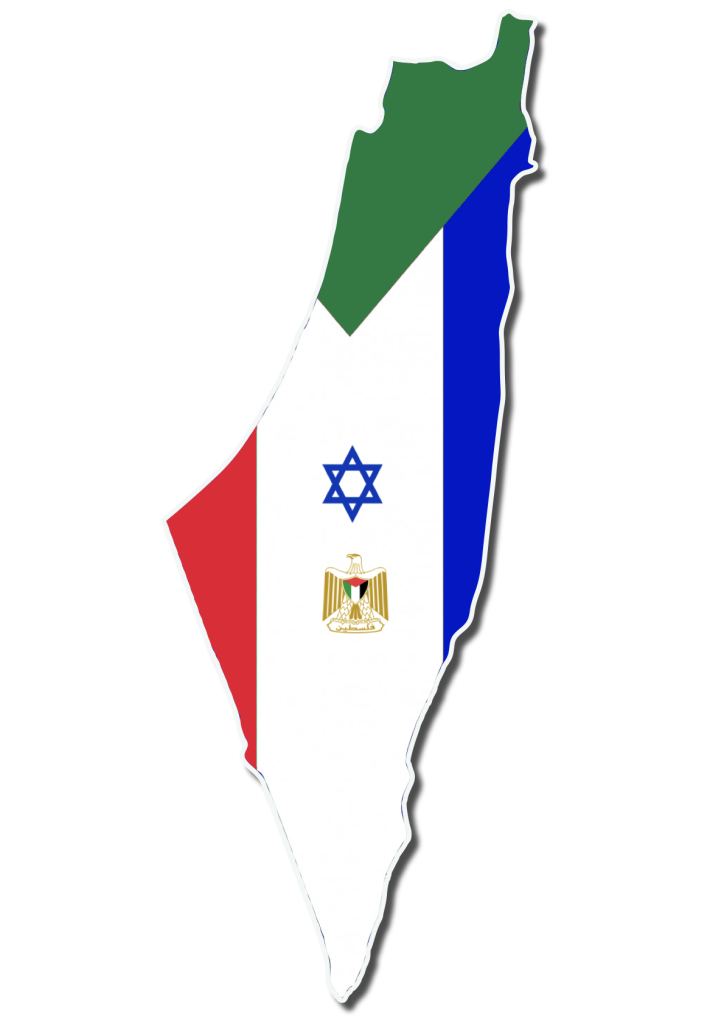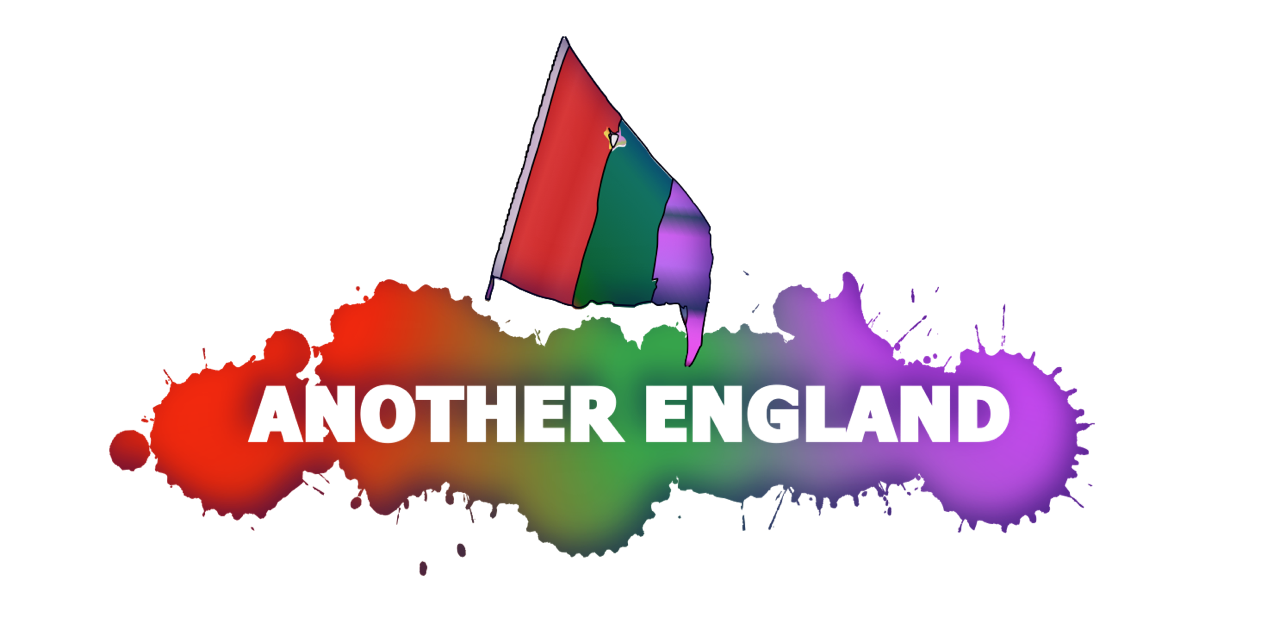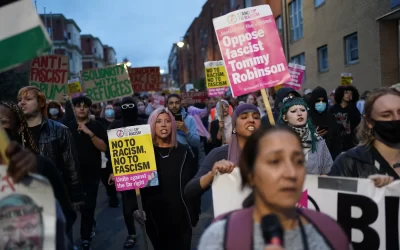
The Kingdom of Judea and the Republic of Israel
At the beginning of the civil war in Israel-Palestine in October 2023 the Republican Labour Education Forum produced a Position Paper making a case for a democratic peace on the basis of a democratic secular federal republic or ‘One State for Two nations’. Subsequently there has been debate in the Weekly Worker drawing criticism from Moshe Machover, Mike McNair and Jack Conrad. A follow up article, “Another Israel is Possible” and necessary(1), focused on one pillar of the federal republic in a ‘Democratic Israel’ (short hand for a ‘democratic secular republic’). This drew a sharp response from Tony Greenstein(2).
Tony declares, “Another Israel is certainly not possible”. It would be the “height of unreality”. At face value, this is a most ridiculous and dogmatic assertion. Israel is already changing. Yet he suggests, keeping a straight face, that change, contradiction, evolution cannot apply in Israel. This is surely flat earth communism. But there is more to this than meets the eye. Tony says, “It has to go” meaning Israel has to be abolished. At best this is ambiguous and at worst dangerously reactionary.
The aim is to clear away some ambiguities and show that ‘Another Israel’ is both possible and necessary with reference to Tony’s own observation that “It is as well to be clear about what it is that makes the Zionist project inherently unstable and to proceed from there”. There are three important points to be considered. The first is the existence of an Israeli nation. Second are differences over the Israeli working class and its potential to bring change. Third are divisions within Israeli society that mean class struggle is already reshaping it.
Israeli Nation
The Israeli nation, but not the Zionist State, is here to stay. Jack Conrad explains that since 1948 “millions of Jews have migrated to Israel, learnt Hebrew, intermarried, had children, assimilated, and made and remade the Israeli-Jewish nation. Today some 75% are sabras – Israeli born – and mostly second or third generation. Hence, the Israeli-Jewish nation not only inhabits a common territory and shares a common language: it is historically constituted”(3).
A nation is not born simply because some ideology declares it to be so. When the state of Israel was proclaimed in 1948 no Israeli nation existed. It takes time and struggle on many levels, as Jack suggests, before a new nation becomes a fact of life. Even if Zionism and its state gave birth to the Israeli nation, it does not mean that the nation cannot grow up and free itself from the legacy of its illegitimate birth.
There is thus ambiguity in the use of the term “Israel” to cover the Zionist state and constitution of Israel on one side and the Israeli nation on the other. Tony wants to abolish both sides, whereas the democratic republican case is to abolish the Zionist state and its constitution and liberate the Israeli nation from it. The Apartheid constitution was abolished but the South African nation continued as a different kind of liberal democratic republic. It is the failure to make the distinction between the state and the people that leads Tony to support a reactionary policy of liquidating the Israeli nation. As has been pointed out by Moshe Machover and Jack Conrad, this means and can only mean the suppression or destruction of the Israeli nation, or people, by various means of war, ethnic cleansing and genocide or its forcible incorporation into another state. The same democratic principles are being denied right now to the Palestinian nation.
Arab-Israelis
There is one major and significant difference to how republicans view the Israeli nation and Israeli working class. We include the twenty per cent of Arab-Israelis as part of the Israel nation. Zionism excludes and ignores them or treats them as if they are not really Israelis and excludes them from political consideration. It would be like discussing the English working class as ‘white’ and excluding ethnic minority workers.
Tony implicitly accepts the Zionist definition of the Israeli working class as equivalent to the Hebrew (Jewish) majority. This impacts on how he sees the revolutionary potential of the Israeli working class. He thinks they are all bought off by Zionist privileges when at least twenty per cent of them are discriminated against and treated as second-class citizens.
When we discuss the potential for the Israeli working class to fight for democracy we are talking about two very different ideas – the Zionist conception of a Jewish working class and the democratic idea of uniting the Hebrew and Arab-Israelis working class around their common economic and political interests. Tony’s Zionist conception of the Israeli working class leads him to reactionary conclusions. He says, “Whether a section of the Israeli population is capable or able to break from Zionism and the idea of a Jewish state remains to be seen, but if there is such a section it won’t come from the Israeli working class”. This stands Marx on his head where the progressive classes are Zionist capitalists and Israeli middle classes who might free themselves from Zionism whilst the Israeli (i.e. Hebrew only) working class cannot and will remain dyed in the wool reactionaries.
Rock of Israel
The foundation of the Zionist state of Israel contained a contradiction between a Jewish and Secular republic woven into the fabric of the new state. Israel was founded as a ‘Jewish democratic state’ in a compromise between religious and secular Jews. Ben-Gurion found a form of words about “the rock of Israel” (Tsur Yisrael) in the declaration of independence so representatives of both sides could sign up to it(4). Drawing a veil over this contradiction is one reason why Israel has no written constitution rather than series of amendments to something indefinable.
The contradiction was highlighted in 1984 by rabbi Meir Kahane of the ultra-nationalist Kach party. Kahane “preached that Israel could either be a Jewish state or a democratic state”. As Tony explained, “He was stating a truth that generations of ‘left’ Zionists have preferred to ignore. Labour Zionism spoke of a ‘Jewish democratic state’, which was always an oxymoron”. (5)
Israel is a deeply divided nation. Writing in Haaretz, Alon Pinkas says, “more and more Israelis on both sides of the divide see their country as essentially split into two distinct entities: Judea and Israel”. This “reality affected, even polluted and decayed, Israel – to the point that Israel is de-facto splitting into two incompatible states”. Whilst the form of state, constitution and culture remain in place “in essence, there is a civil war raging in Israel. It has not reached Gettysburg levels, but the deep and wide schism is becoming glaringly evident”(6).
The rock is wobbling. As Pinkas says “Even the most fundamental common narrative, the Declaration of Independence, is now being questioned with some of its basic tenets and guiding principles a source of political contention”. He says “It may seem crazy, impractical and unfeasible to talk of a dissolution into two states or some federative structure, and it probably is” but “The fact that it is not doable doesn’t change the fact that the divide is real, widening and becoming unbridgeable. Israel and Judea do not share a common perception or idea of a Jewish state”.
Tony cites Illan Pappe describing the cleavage “between the state of Judea and the state of Israel”. Tony frames this cleavage in different terms. “The main divide in Israel is between those who see themselves as Jewish first (46%) and those who see themselves as Israeli (35%). See the Pew Research Center’s Israel’s religiously divided society”. He adds this “probably underestimates the proportion of Israelis who see themselves as Israeli first”.
Tony goes deeper into this division. “The wealth-creating, western-oriented section of Israel’s population is growing weaker, not stronger, as a settler regime has come to power”. He adds, “Indeed it is one of the ironies of the situation in Israel, that but for the common Palestinian enemy, the two Zionist camps would already have fallen upon each other”.
Under the present Zionist constitution, the modern capitalist section of Israeli society located around Tel Aviv cannot win unless it overthrows or reconstitutes the political laws of Israel. The advanced part of Israel is losing its battle with the Judeans. Tony thinks it serves them right. He is enjoying his schadenfreude. Netanyahu has understood the same dynamic. He reconstituted the political laws to make Zionism mandatory. Now he cannot stop the war in Gaza for fear of confrontation within Israel society.
Taking Sides
The battleground over what kind of Israel is already mass politics. A struggle between reactionary Judeans and liberal Zionist Israelis is a political expression of class struggle. Tony denies the Israeli working class has any interest in this. It is an assumption that flows from the ideas of economism leading to political abstention. Tony believes the working class cannot or should not take sides. Indeed he thinks the Israeli working class is irredeemably reactionary and can, therefore, only support the state of Judea.
If you view the class struggle in the narrow idea of economic struggle and strikes you cannot recognise that the fight between “the state of Judea and the state of Israel” is the political form of struggle between the reactionary and progressive class forces. Such a mass struggle cannot take place without the Israeli working class taking sides and for the politically conscious Israeli workers formulating their own independent politics.
Of course the working class should ‘take sides’. Lenin was clear that it is not possible to intervene in mass politics in bourgeois society without taking sides or marching side by side in a certain sense with the liberals against the reactionaries. There was one vital condition – that the working class must have its own independent democratic programme.
If we want to see the kind of programme, we should look to Moshe Machover’s minimum conditions. Jack Conrad says something very similar that “while fully taking into account history, any consistently democratic programme must be squarely based on contemporary realities – crucially human facts on the ground. Abolition of Zionist Israel, legal equality for all, secularism, halting expansionism and withdrawing from the occupied territories are basic (minimal) programmatic demands”(7).
A laser focus on the ‘crisis of democracy’ in Israel is not to reject or downplay the importance of the international working class. Another Israel does not mean a narrow ‘Little Israel’ perspective that ignores the rest of the world. There is a futile chicken and egg argument over whether a democratic and social revolution in Iran, Egypt, Jordan or Saudi Arabia will come first or vice versa. This is unknowable and unpredictable. But we do know where the sharp end of the conflict is right now. Internationalism is not an excuse to abandon the Israeli working class to Zionism. The self-liberation of the Israeli working class cannot be outsourced. The Israeli people and the Israeli working class in particular will benefit from replacing the current Zionist Israel with a democratic Israel. It would bring peace, greater prosperity and security to both the Israeli and Palestinian people and strengthen the position of the Israeli-Palestinian working class.
Democratic Republic
Of course a working class democratic programme must include the demand for a democratic secular republic against a Zionist Jewish republic. This is so obvious that it is embarrassing to have to remind anybody claiming to be a socialist. The republic is not simply one democratic demand among many but the cement that holds them all together and unites the many demands put forward by Moshe and Jack as one. Yet Tony claims the case for a democratic programme “isn’t helped by Steve’s determination to view the situation through the lens of his favourite obsession, a bourgeois-democratic republic”.
There are two things to be said here. First Tony opposes a ‘democratic secular republic’ for Israel and carefully avoids it for Palestine, which he calls a democratic, secular state. Avoiding or opposing a republic may be to keep open the option of constitutional monarchy for example in the Hashemite dynasty in Jordan or not to alienate the Saudi monarchy. It may simply reflect a cultural preference of English anti-monarchists to steer clear of the ‘R-word’ associated by royalist propaganda with Irish rebels or the US and French republics. He shows his opposition to a democratic secular republic in Israel by adding the word ‘bourgeois’ to the Israeli republic but not the Palestinian democratic state. Adding ‘bourgeois’ to describe something that exists is un-contentious. But not every future democratic republic will necessarily be ‘bourgeois’ as shown by the Paris Commune or the Russian Workers and Peasants republic of 1917. So this is deliberately limiting the idea of a future democracy to the benefit of Zionism.
Conclusion
Israel needs to be reconstituted as a democratic secular republic if the Israeli nation is to escape the deadly trap that Zionism has created for the Jewish and Palestinian people. This much is common sense, easy to understand and revolutionary in its implications. A programme of radical democratic change is in the interests of the Israeli working class, the Palestinian people and indeed the working class throughout the region and rest of the world.
The democratic republic cannot win unless it seeks to unite Hebrew and Arab-Israelis under the kind of democratic programme proposed by Moshe Machover and Jack Conrad and not forgetting its best version as a federal republic of one state for two nations. Such a plan would be strongly opposed by US imperialism and the Arab ruling classes but would be backed by the Palestinian working class or the wider Arab proletariat.
There is a ‘crisis of democracy’ in Israel and a deep divide in Israeli politics between those who support Judea and those who want a secular republic of Israel. At present, the Kingdom of Judea is winning under the beneficent rule of King Benjamin I. No doubt some Israel workers would prefer Godly rule to secular democracy but not the many liberally minded Hebrew and Arab-Israeli workers. Of course, ‘Another Israel’ is possible, an Israeli nation without a Zionist state and constitution. Nobody can doubt the commitment of Tony Greenstein to opposing Zionism and supporting the Palestinian people. It is with full respect for his long struggle that I make these comments. Zionism and the Jewish republic are anti-democratic and must be confronted by the struggle of the Israeli people for its opposite – a democratic secular republic. Economism, an inconsistent, half-hearted, unscientific, sneering at a democracy always helps Zionism to keep the working class weak and divided.
Notes
(1) Weekly Worker 1496, 20 June 2024
(2) Weekly Worker, Letters, 1497, 27 June 2024
(3) Weekly Worker 1498, 4 July 2024
(4) Martin Kramer, ‘Did Israel’s founders declare a secular state’ Mosaic Magazine, 20 July 2021
(5) Tony Greenstein, Weekly Worker 1240, ‘In alliance with neo-Nazis’






A fascinating analysis of the schism within Israel between, on the one hand, the ‘Judeans’, based around Netanyahu, and, on the other, the international capitalist Israel based around Tel Aviv, a schism which has been largely ignored during the Gaza genocide, because of the temporary unity of both sides in the face of the so-called ‘existential threat’ posed by Arabs in Israel, in the West Bank & Gaza, and in the surrounding states. This is a fragile unity, which is currently symbolised by the differences over the hostages, This article looks at the implications of this underlying divide for the varying proposals being discussed at the moment on the Left.